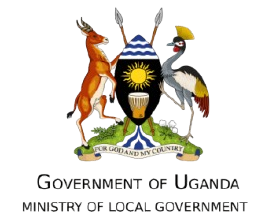In a landmark event for Kibuku District, the Minister for Local Government, Raphael Magyezi, officially commissioned the Buseeta Milk Collection Centre, an initiative that promised to transform the region’s dairy sector and improve household incomes. Constructed at a cost of UGX 667 million under the Local Economic Growth Support (LEGS) Project, with funding from the Islamic Development Bank and the Lives and Livelihoods Fund, the facility was equipped with a 6,000-litre milk cooler and a backup generator, addressing a long-standing challenge of milk storage and quality control.
While touring the facility, Hon. Magyezi applauded the resilience of the Kibuku District Dairy Farmers Cooperative Society (KIDDFCS), which had started in 2018 with just 40 members and had since grown to 361, including 215 fully paid-up members. He emphasized the need to strengthen the cooperative’s impact by setting up a veterinary clinic and livestock drug shop, not only to serve farmers but also to attract a wider clientele.
“This Centre must go beyond cooling milk—it should be a hub for value addition, animal health, and innovation,” he advised.
He also pledged government support through LEGS 2 to provide a yoghurt-making machine to boost value addition. “Improving cattle breeds and processing milk into yoghurt, butter, or cheese is where real income begins,” he said, encouraging farmers to shift from low-yield local breeds to improved ones and leverage the already trained eight Artificial Insemination technicians, who had bred over 300 cows and produced 120 improved calves across the district.
To secure sustainability, the Minister urged the district to work with the Church to allocate more land for a training center. “We must build capacity. Let us plan for a dairy training Centre right here to keep this momentum alive,” he said.
Hon. Magyezi also announced that he had joined the cooperative as a member, symbolizing his commitment to the cause, and urged young people to benefit from PDM and Micro-Finance Funds under MSC-LEGSP.
“Let the youth work and earn—this will reduce cattle theft,” he stated.
Women were not left out of the narrative. The Minister appreciated the female cooperative members who were making mineral blocks for dairy cows and encouraged them to expand production.
“This is the kind of grassroots initiative we must support. You’re adding value in ways that matter,”
he said.
Chairperson Stephen Bola hailed the Centre as a “lifeline for farmers” and thanked the government, partners, and the Catholic Archdiocese of Tororo for the land donation. He revealed that the Cooperative bought milk at UGX 1,050 per litre and sold it locally at UGX 1,400 and to wholesalers at UGX 1,200, ensuring fair trade for members.
Assumpta Tibamwenda, the Technical Advisor at the Ministry of Local Government, urged district leaders to institutionalize strong maintenance and governance systems to ensure the sustainability of LEGS investments.
“This is the future of Uganda’s rural economy. Let’s protect it, grow it, and pass it on,” she said.
As the community geared up for yoghurt and cheese production, the Cooperative also awaited a UGX 216 million tractor under the Micro Support Center scheme. With a clear vision, growing membership, and strong government backing, the Milk Collection Centre was fast positioning itself as a model for rural dairy development and economic transformation.




